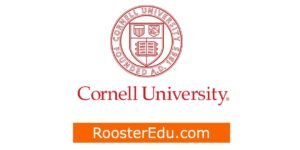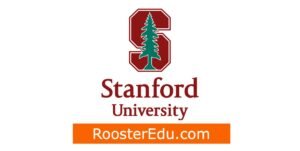Are you a PhD holder interested in Postdoctoral Fellowships? RIKEN, Saitama, Japan is offering Postdoctoral Fellowships in various research fields. Apply today to pursue your research interests in a stimulating academic environment!
1. Postdoctoral Position
Summary of Postdoctoral Fellowship:
The lab is focusing on investigating how an internal model of the world is maintained and updated within neural circuits. Although we generally perceive the world as stable, information reaching the brain from the senses is often disconnected and ambiguous. This suggests that perception involves some form of predictive model that incorporates recent information to more effectively interpret and respond to current inputs. This kind of implicit internal model is thought to involve short-term maintenance of information enabled by interactions between multiple cortical and thalamic circuits.
Application Deadline: Open Until Filled
2. Postdoctoral Position
Summary of Postdoctoral Fellowship:
“The central dogma of molecular biology”, which represents information flow from DNA to RNA to protein, has been most basic principle in life. Recent quantitative and comprehensive analysis revealed that amount of RNA could not simply correlate with protein abundance in cells, suggesting that “translation control” significantly contributes to gene expression in more general than as we previously expected. Our laboratory tackles the unknown mechanism of translation control, by the combination of next-generation deep sequencing and classical biochemistry.
Application Deadline: Open Until Filled
Follow us for regular updates
3. Postdoctoral Position
Summary of Postdoctoral Fellowship:
The missions of RIKEN Center for Quantum Computing (RQC) are to deepen our understandings of quantum mechanics and quantum information, develop techniques for quantum control and measurement, build quantum computing hardware and software, and explore novel applications. We promote basic research on quantum information science and contribute to society through quantum technology. Our team, Optical Quantum Computing Research Team, is conducting research on optical quantum computers toward realizing fault-tolerant universal quantum computers based on quantum teleportation.
Application Deadline: Open Until Filled
4. Postdoctoral Position
Summary of Postdoctoral Fellowship:
To understand functions of biomolecules, it is crucial to grasp their structural dynamics. The Laboratory for Dynamic Biomolecule Design aims to develop methods for designing biomolecules, such as membrane proteins and peptides, with controllable conformational dynamics through combination of protein design and molecular simulation techniques. Our primary objective is to uncover the mechanisms governing biomolecular functions through experimental characterization of the designed molecules. By incorporating a chemical perspective, we also aim to expand the application of our designed biomolecules as tools for perturbing cell dynamics, imaging cells and tissues, and sensing environment, useful to life science research.
Application Deadline: Open Until Filled
5. Postdoctoral Position
Summary of Postdoctoral Fellowship:
A Nuclear Magnetic Resonance (NMR) spectrometer can analyze the structure of various substances such as biological samples, polymers, nanomaterials, and natural products using a magnetic field. The analytical performance of an NMR improves as the strength of the magnetic field increases. We conduct research and development on cutting-edge magnet technology that integrates high-temperature superconductor wire, coils, and joints as next-generation high-field magnets for NMR. Based on the technology, we will develop the world’s highest magnetic field NMR magnet as well as ultra-compact NMR magnets without consumption of liquid helium, to contribute to the research of biosystems dynamics through analyses of biological samples.
Application Deadline: Open Until Filled
6. Postdoctoral Position
Summary of Postdoctoral Fellowship:
The RIKEN Center for Computational Science (R-CCS), led by Center Director Satoshi Matsuoka, is an international hub for computational science that promotes “science of computing, by computing, and for computing.” R-CSS positions the technology in which RIKEN has strengths (R-CCS technology) and the software developed by RIKEN that contributes to science, technology, industry, and society (R-CCS software) as its “core competence in computational science driving science as a whole.” R-CCS aims to develop these technologies, disseminate them domestically and internationally, and produce results. In addition, R-CCS utilizes its expertise to operate the supercomputer “Fugaku”, developed as Japan’s national project, in accordance with relevant ordinances.
Application Deadline: Open Until Filled
Looking for more Postdoctoral Position
7. Postdoctoral Position
Summary of Postdoctoral Fellowship:
In the TRIP-AGIS project, R-CCS has been developing systems for advanced high-performance computing system to promote AI for Science research. In order to develop and utilize generative AI models for scientific research (scientific foundation models) that handle a variety of multimodal data, we have been conducting performance analysis and developing system software to improve the performance of the supercomputer “Fugaku” and AI-dedicated systems equipped with GPUs. Our unit develop a data management infrastructure for efficient development and utilization of scientific foundation models.
Application Deadline: Open Until Filled
8. Postdoctoral Position
Summary of Postdoctoral Fellowship:
Our group is on soft materials such as gels, liquid crystals, and colloids. By assembling these structural units into anisotropic or polar structures, we aim to develop soft materials that exhibit functions similar or superior to those of living organisms. The candidate should possess a doctoral degree, or the candidate will be able to obtain a doctoral degree before the work start date. The candidate is expected to have experience of studies on polymer science, material science, or supramolecular chemistry.
Application Deadline: Open Until Filled
9. Postdoctoral Position
Summary of Postdoctoral Fellowship:
The RIKEN Interdisciplinary Theoretical and Mathematical Sciences Program (iTHEMSThe webpage will open in a new tab.) promotes interdisciplinary collaborations and the creation of new interdisciplinary fields through interactions among researchers in mathematics, theoretical sciences, and computational sciences. iTHEMS aims to nurture and support young scientists eager to cross disciplinary boundaries.
Application Deadline: Open Until Filled
10. Postdoctoral Position
Summary of Postdoctoral Fellowship:
Our group is working on both artificial and biological catalysis. Namely, we are developing electrocatalysts for hydrogen production and other reactions related to clean energy, while also studying the reason behind the diversity of enzymes for amino-acid biosynthesis. While the two topics may seem distant at first glance, both systems are designed to promote specific chemical reactions, and therefore, there are similarities in the underlying principles of physical chemistry. Furthermore, we are currently expanding the theoretical framework such that not only activity, but also selectivity, stability, lifetime, self-replication, and other life-like properties can be predicted mathematically. Based on the multi-dimensional evaluation of both artificial and biological catalytic systems, we aim to promote sustainable energy-material conversion.
Application Deadline: Open Until Filled
11. Postdoctoral Position
Summary of Postdoctoral Fellowship:
The Biophenomena Engineering RIKEN ECL Research Team aims to establish novel therapeutics for hard-to-treat diseases by investigating the wealth of biological processes and modifying cells using molecular tools derived from unique biological systems. To achieve this goal, we are mining novel biological systems from databases using AI-driven tools, characterizing their functions through biochemical analysis, engineering them as molecular tools, and applying these novel tools in disease models. Recently, we are actively working on RNA-guided systems, such as the well-known CRISPR-Cas, which is widely used for genome editing technology, aiming to more precisely regulate biological processes involving DNA and RNA.
Application Deadline: Open Until Filled
12. Postdoctoral Position
Summary of Postdoctoral Fellowship:
Our group focuses on the characteristics of organic semiconductors from the viewpoint of basic chemistry based on molecular science and conducts a wide range of research activities such as molecular design, organic synthesis, structural analysis, characterization, and device applications, aiming to develop the functions and properties of these materials. In particular, we are tackling fundamental questions such as how the functions and properties observed in the crystalline and thin-film states of molecular assemblies correlate with the structures and molecular properties of individual molecules and what kind of molecules should be designed to realize molecular assemblies that realize the desired functions. We also focus on the application of organic semiconductors to devices such as field-effect transistors, solar cells, and thermoelectric conversion devices.
Application Deadline: Open Until Filled
13. Postdoctoral Position
Summary of Postdoctoral Fellowship:
The successful candidate will conduct research to elucidate the core molecular mechanisms underpinning rice root invasion by diverse beneficial arbuscular mycorrhizal fungi. As Magnaporthe oryzae adopts an endophytic life-style in rice roots, related to arbuscular mycorrhizal fungi, it will serve as a genetically tractable comparative system. The hire will be expected to independently design, perform and interpret experiments, including plant and fungal cultivation, inoculation and colonization assessment by standard and confocal microscopy and a wide range of molecular techniques, including transcriptome analyses on an organ or single cell level. The dissemination of findings at national and international conferences is a core component of the job.
Application Deadline: Open Until Filled
14. Postdoctoral Position
Summary of Postdoctoral Fellowship:
The RIKEN Center for Computational Science (R-CCS), led by Center Director Satoshi Matsuoka, is an international hub for computational science that promotes “science of computing, by computing, and for computing.” R-CSS positions the technology in which RIKEN has strengths (R-CCS technology) and the software developed by RIKEN that contributes to science, technology, industry, and society (R-CCS software) as its “core competence in computational science driving science as a whole.” R-CCS aims to develop these technologies, disseminate them domestically and internationally, and produce results. In addition, R-CCS utilizes its expertise to operate the supercomputer “Fugaku”, developed as Japan’s national project, in accordance with relevant ordinances.
Application Deadline: Open Until Filled
15. Postdoctoral Position
Summary of Postdoctoral Fellowship:
Our group is dedicated to advancing the frontiers of structural life sciences and drug discovery through the utilization of cutting-edge facilities, including the large synchrotron radiation facility SPring-8, the X-ray free-electron laser (XFEL) facility SACLA, and state-of-the-art cryo-electron microscopy. We oversee the operation of these sophisticated facilities, ensuring their availability for public scientific research, while also spearheading efforts to enhance their capabilities and infrastructure. Our primary objective is the development of advanced measurement and analysis techniques for X-ray crystallography and small-angle X-ray scattering, leveraging the unparalleled brightness of synchrotron radiation and XFEL sources.
Application Deadline: Open Until Filled
16. Postdoctoral Position
Summary of Postdoctoral Fellowship:
Our unit works on development of molecular transformation reactions using transition metal catalysts and light energy. Specifically, we are interested in the photochemical conversion of small molecules such as carbon dioxide, and the photouncaging reactions applicable to various biological systems, with the aim to contribute to solve social problems in the environmental and medical fields.
Application Deadline: Open Until Filled
17. Postdoctoral Position
Summary of Postdoctoral Fellowship:
Why do we think and behave the way we do? Accumulating behavioral evidence shows that the sleeping brain plays a critical role in our thoughts and actions. In the Cognitive Somnology lab, we develop and integrate various neuroimaging (3T and 7T MRI), physiological (EEG), and psychophysical techniques to elucidate the fundamental role of the sleeping brain in human cognition and behavior.
Application Deadline: Open Until Filled
18. Postdoctoral Position
Summary of Postdoctoral Fellowship:
In our laboratory, we study how tissue homeostasis is regulated mainly using Drosophila. Recently we discovered how stem cells become dysregulated during aging (Sasaki et al. Nature Metabolism 2021). We also discovered how oncogenes simultaneously stimulate both cell death and cell proliferation (Nishida et al. eLife 2021). Most recently, we discovered a new cell death, which we named erebosis, in the fly gut (Ciesielski et al. Plos Biology 2022). We are looking for research scientists or postdoctoral researchers or research associates who are interested in pursuing this line of research.
Application Deadline: Open Until Filled
19. Postdoctoral Position
Summary of Postdoctoral Fellowship:
Star formation is one of the most fundamental structure-formation processes in the universe. By use of the state-of-the-art radio telescopes including ALMA, we are investigating chemical evolution along star and planet formation. At the same time, we are also revealing its formation mechanism by full use of physicochemical tools. When and how is a disk structure formed around a protostar, how is it evolved into a protoplanetary disk and eventually to a planetary system, and how does chemical composition change along them? Those are essential questions deeply related to the origin of the Solar system and even the life. Toward full understanding of the chemical evolution, we are also conducting related laboratory experiments; spectroscopy of molecules in astronomical interests in the millimeter and submillimeter regimes.
Application Deadline: Open Until Filled



